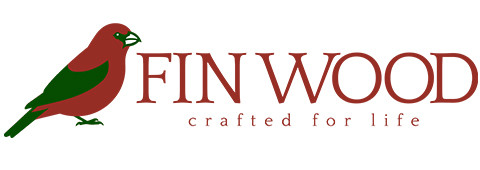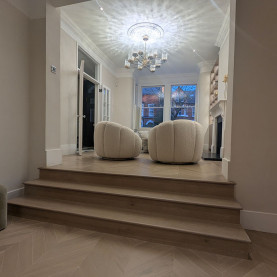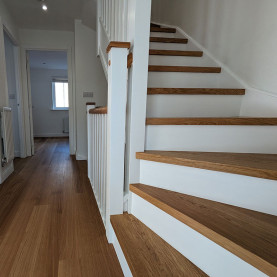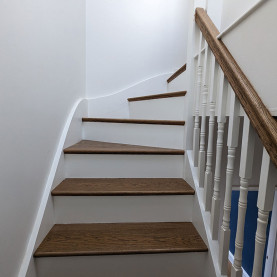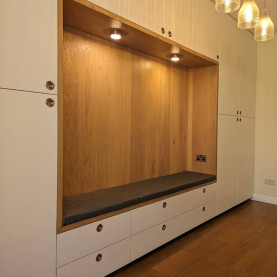Wood Stair Cladding: An Expert Guide
Stairs are usually one of the first things you see on entering a home and as we all know, first impressions really do count. If your existing stairs need revitalising, stair cladding with wood is a fantastic option. As well as improving the look of the stairs, our work can also strengthen the structure, making the staircase more robust and safer.
Why Wood?
Most of the stairs we clad are in Victorian homes. In this style of property hallways are often long and narrow, so they can feel dark and uninspiring. Wood flooring, which runs from other rooms or from the hallway up and along the stairs, will transform any home. As there isn’t a break in materials, the space will feel far more open and spacious. Wood is also a practical option, as it’s much easier to clean than carpet.

Walnut clad stairs match the walnut herringbone parquet in the living room and hall

Oak stairs complement the oak parquet wood flooring in the hallway and landing

We crafted each piece of wood to create this spiral staircase
Staircase Styles
We can improve any style of staircase. On older stairs with winders and triangular steps, we keep the wood grain parallel with the edge of the step, allowing the stairs to visually flow. Ensuring that the grain patterns line-up is a more complicated process, but the final result is definitely worth the extra effort. We can work on stairs with an open cut stringer, where the zig zag pattern of the steps is on show, as well as stringers which conceal the side profile of the steps.

Stairs with an open cut stringer
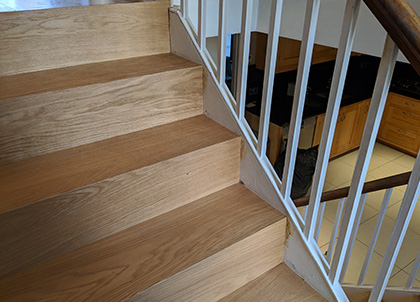
The stringer on these stairs conceals the step’s profile
Cladding Styles
There are two styles of cladding; modern and traditional. Our work on modern staircases features a simple join between the tread and riser, which is clean and unfussy. For a more classic and traditional look, a special trim called nosing is used to cover this join. For both of these styles we like to use one wide board to cover the entire step. However, if narrow wood flooring is preferred, we have developed a special technique which creates a seamless fit but retains the wood’s grain pattern. This makes it clear that two different boards have been used.

A modern staircase with a straight tread and riser with seamless join
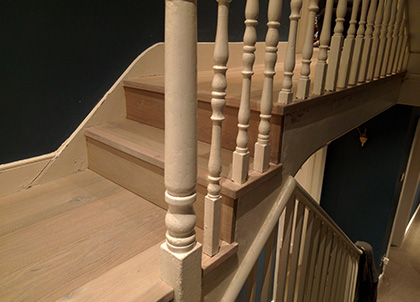
The nosing creates a more traditional look
A Seamless Approach
We like our renovated stairs to look original, so we don’t aim for perfectly squared lines in older properties. In terms of running the wood under banister spindles, as these are fixed in place, we’ve developed a special technique which allows us to insert the wood underneath, without the need to remove them. This creates a completely seamless fit and means that we don’t need to tamper unnecessarily with the structure of the stairs.

Classic stairs with nosing and shaped bottom step

The wood runs under the spindles without the need to remove them
Stronger Stairs
New wood cladding is securely fixed to the structure of the stairs, so the old steps and risers covering has to be completely removed first. Once the structure is stripped down, we can assess the condition of the staircase and determine if it is structurally sound. Cladding alone will strengthen the stairs, but we can also correct wonky steps, displaced risers and other flaws. Our stair work is bespoke, so each job is assessed and considered individually.

All our stair work is bespoke, so we can work with all shapes and sizes
If you would like any further information or advice on cladding stairs with wood, or would like a quote for our work, please get in touch.

